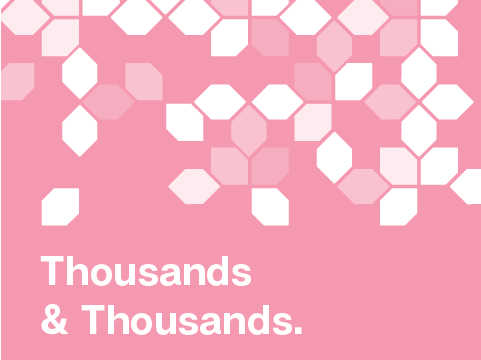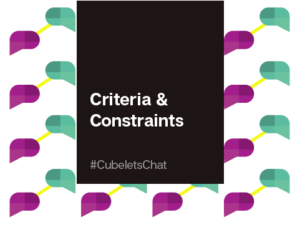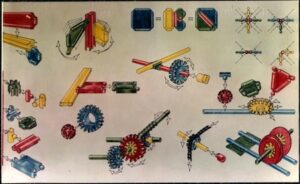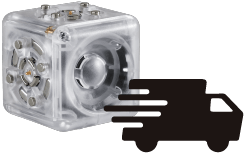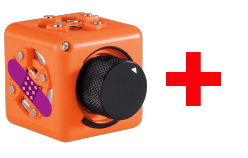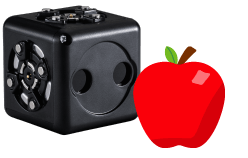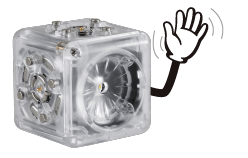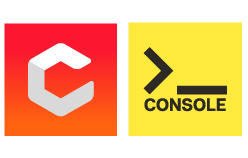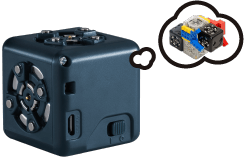Here’s a question I’ve been asked a few times since joining Modular Robotics just two weeks ago:
Scott (our Director of Supply Chain) walked up to my desk and said, “So, when you tell people about your new job, what do you tell them? What’s your title?”
“I say, ‘I’m the Educational Program Manager at Modular Robotics,’ . . . and then the tail end of that sentence is always, ‘And it’s the best job I’ve ever had. ‘ “
I’ve never been terribly attached to titles, but this one is exciting because it lets me explore the everyday of what kids need and teachers and schools and other learning outlets want while thinking beyond the here-and-now to what education should do.
By joining Modular Robotics, it’s not just a new job for me (hooray!) where I am inspired to work with people who in equal measure represent intelligence and creativity and fun (even better!). It also marks a new journey for this company (the coolest part yet). It’s no secret that this company is growing and changing fast. It’s exciting to be part of this phase of a cool start-up as it goes from infancy to adolescence with more potential on the horizon. And, as a place that makes and produces something, much of that growth and change has been about how to produce more, how to create systems so that Cubelets are produced efficiently and with quality, and how to do it responsibly.
Hiring me doesn’t make more Cubelets or change how fast Cubelet kits can be produced. It’s altogether different to add an educator to the team because my job is to figure out how to connect our product with educational settings and needs. Except, the more we talk about it, that’s maybe what I’ll produce – educational uses for Cubelets delivered in the form of an educational network (locally as well as nationally), teachers and educators who want to use Cubelets with their students and great curricula to do so, and opportunities for us to use Cubelets in other learning venues. But perhaps the more profound activity for this desk is to craft a plan that goes beyond providing teachers and students with something they know they need and presents compelling reasons to do things that aren’t currently being addressed or asked for. I’d like to drive change in education by giving students and teachers hands-on opportunities to see how that can be done. All of this is to say, I’m fired up by the blank page and what we can put on it by diving into education in all its forms – museums, camps and after-school settings, and schools and classrooms.
Conventional wisdom says that toys are for playing, and classrooms are for “important” learning. I have a background in the why, the how, and the pressing need for making sure that students have good foundational or “basic” skills. In my past working history I’ve said to parents more times than I can count,”Sometimes your child is just going to have to do the work of practicing ___ over and over until it’s automatic and easy for them.” And I believe that, not just because but because I’ve seen the frustration that arises when a bright student understands Algebra but makes a simple calculation error. On the flip side, I’ve seen the results when a so-called struggling student masters basic math facts or sight words and suddenly finds an entry point to grasp bigger ideas and concepts. That’s the moment they realize they aren’t a struggling student anymore, and usually others around them do too!
All that said, I also am convinced that when students don’t see the value of their education, they won’t invest themselves in it. They won’t take ownership or find a passion for something that carries them through the rough class in college or the teacher they didn’t like as well in high school or the problem they weren’t able to tackle on the first try. In order to make students that energetic about the work they do to learn, it can’t just be skills and tests, and it’s not enough to merely tolerate their participation in their learning or to give them infrequent chances to make their ideas real. It’s critical to promote opportunities for students to apply what they know, to pose their own questions and then have the means to test their ideas and answers, to tackle an idea by crawling all over topic and discipline boundaries. I’ve yet to meet a student that doesn’t respond positively to getting their hands on things and DOING – it is key in powerfully demonstrating what education is FOR to the very ones we’re trying to educate.
Put another way: Make it fun. Make it initially simple and a low barrier to get started without taking away any of the complicated questions or possibilities that might come up later. Make it as open ended and student-driven as possible. Make it fun for adults to get in on so that he grown-ups and students can work together comfortably. Make it connect back to a skill or tool they gained in a class, but that isn’t limited to that unit, that chapter, that class. Make the ideas encapsulated enough for kids to get started right away but big enough to capture their interest for longer than a 42 minute class period.
I’m deeply persuaded this kind of learning works because I was fortunate enough to get an education like this for four of the 22 years of my formal schooling. I also know this kind of learning presents challenges because it requires a lot of attention per student, a lot of resources, and a lot of cool opportunities. But realistically, when education isn’t delivered well, that’s a lot of resources wasted; so, I’d rather do it right, even if it’s harder.
Well, hey, I’m working somewhere where it is OK to challenge conventional wisdom. Education must impart foundational smarts, but can’t be reduced to memorizing facts or sitting through classes as a means to an end. If we want kids to believe in their education we must give them the chance to help shape it – let’s start as early as possible by letting children play and learn simultaneously. I can’t think of a better way to do that than with Cubelets nor can I think of a better job than Education Program Manager at Modular Robotics.
So, Welcome to Me, but more important than me, welcome to Modular Robotics pressing into the educational landscape and seeing where we fit today, and where we can lead the charge tomorrow. I’m thrilled, amped, and all other manner of enthusiastic about all the outlets for learning and education with Cubelets I’ve dreamed up (and excited to discover more!) to not just do what is being done better, but to show that education should not and must not choose between being innovative and being effective.
